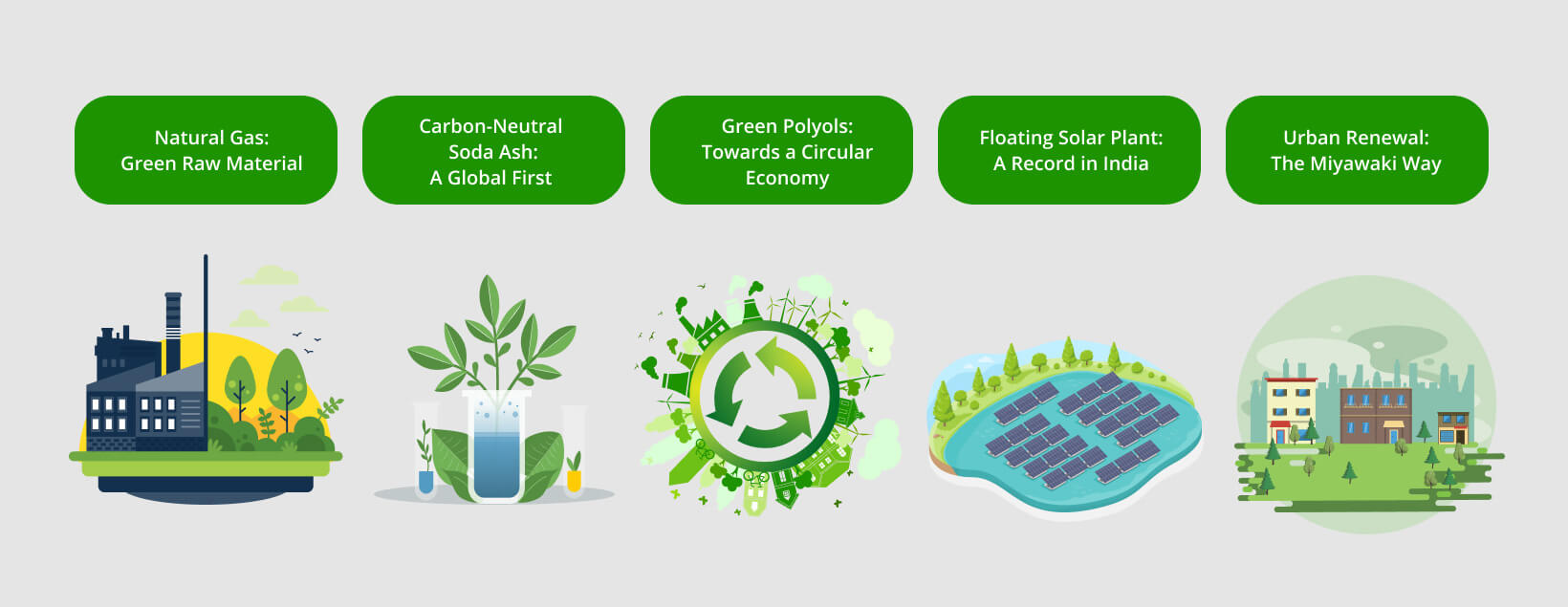AMIH continues to set benchmarks in environmental sustainability because we invest time, resources and R&D in pursuing our ESG agenda. On World Environment Day, a look at some of our unique eco-initiatives, proving that the manufacturing sector play a significant role in promoting sustainability.
AM International Holdings (AMIH) is continuously setting an example on how the manufacturing industry and environmental sustainability can work together to achieve positive results. For years now, our environmental stewardship has been an inspiration, even as our group companies consistently set benchmarks in areas such as carbon neutrality, water conservation, energy efficiency, renewable energy and waste management.
As we relentlessly pursue an sustainable strategy to minimize the impact of our operations on the environment, we discovered two compelling truths: one, we could achieve our green goals only if we integrated the necessary technology into our manufacturing operations; and, two, we would have to make sustainability a part of our DNA.
On World Environment Day, we look at some the green strides AMIH has made. Our commitment to the planet is non-negotiable.

Natural Gas: Green Raw Material
In March this year, AMIH hit yet another ESG milestone, when group company Southern Petrochemical Industries Corporation Limited (SPIC) completed its transition from naphtha to natural gas as a raw material source in the production of urea. The company began its transition to natural gas in March 2021 and completed it in two phases at its plant in Thoothukudi, Tamil Nadu.
The move has been a game-changer. It helps SPIC align with the Indian government’s energy-related policies, which are pushing for a shift from high-cost to low-cost fuels and raw materials. The robust supply of natural gas through Indian Oil’s cross-country pipeline also makes SPIC’s operations highly sustainable while being environmentally friendly.
Carbon-Neutral Soda Ash: A Global First
Only a few months earlier, in November last year, Tuticorin Alkali Chemicals & Fertilizers (TFL) achieved a global milestone in sustainable manufacturing, by becoming the first company in the world to produce green soda ash, or carbon-neutral soda ash. Manufactured at its plant in Thoothukudi, this batch of soda ash is used to make products of everyday use such as detergents, window panes and batteries. The TFL team realised that producing green soda ash would have a multiplier effect due to its widespread application.
We went the extra mile to achieve this milestone. Leveraging the latest technology, TFL set up a CO2 recovery plant to capture carbon from coal used as fuel in its boiler for steam production. The carbon was converted into biomass fuel to eliminate fossil-fuel usage, thus achieving carbon-neutrality in the manufacturing process. It was a great R&D effort!
Green Polyols: Towards A Circular Economy
AMIH took another giant step forward in its ESG agenda when Manali Petrochemicals Limited (MPL) partnered with UK-based Econic Technologies to produce CO2-containing polyols two years ago. This step will help in developing a carbon-neutral footprint by reducing GHG emissions, thus contributing to a circular economy. It has also made the production of polyols cost-effective. Polyols are the building blocks of polyurethanes, which are used in a wide range of everyday products, from mattresses and automotive interiors, to building insulation and refrigeration, and a host of industrial products.
MPL, the market leader and only integrated polyol producer in India, harnessed the power of science and innovation to retrofit its production facility to make CO2-containing polyols and achieve this ESG marker.
Floating Solar Plant: A Record In India
That same year, SPIC set another benchmark in clean energy. Its captive floating solar power plant went on stream at its manufacturing facility at Thoothukudi. This state-of-the-art, 25.3 MW plant is among India’s first and largest floating renewable energy initiatives to optimise energy production in industrial plants. It can generate 42 million units of electricity every year. The power it produces is used in the manufacturing activities of SPIC and Greenstar Fertilizers, resulting in considerable energy savings.
The upshot is that floating solar projects provide higher yield than land-based solar plants, enhancing energy generation and minimizing the loss of water through evaporation. Once again, SPIC went all out, and sought out a global leader, France-based Ceil and Terre, to design, engineer and anchor the floating islands and the supply floats.
Urban Renewal: The Miyawaki Way
Another eco-initiative led by Manali Petrochemicals Limited is the reforesting of a part of Manali New Town in Chennai, near the company’s plant. In collaboration with the local municipal authorities, MPL has used the highly effective Japanese Miyawaki technique of tree plantation to in the region. MPL is proud to join other business entities and NGOs deploying this technique to help India keep its commitment under the Paris Agreement to increase its green cover from 25% to 33%.
